april -march 2010
April 30th
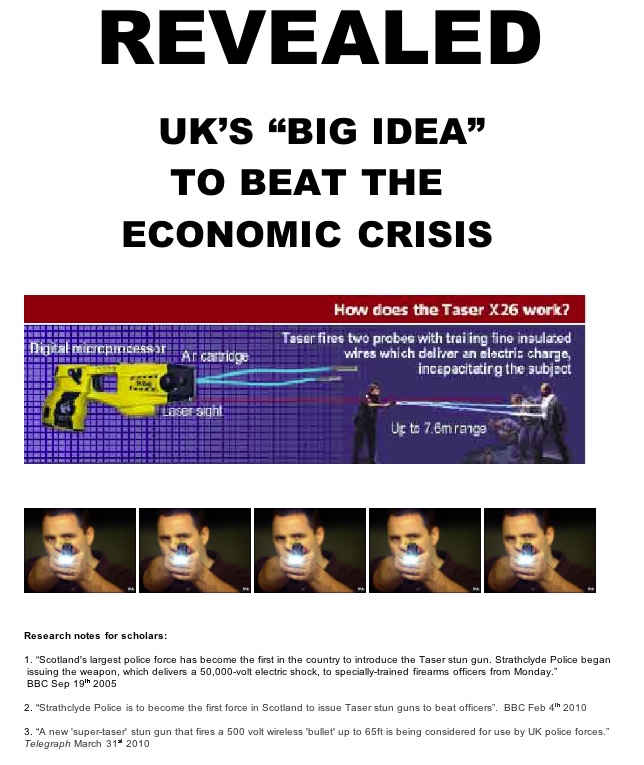
April 29th
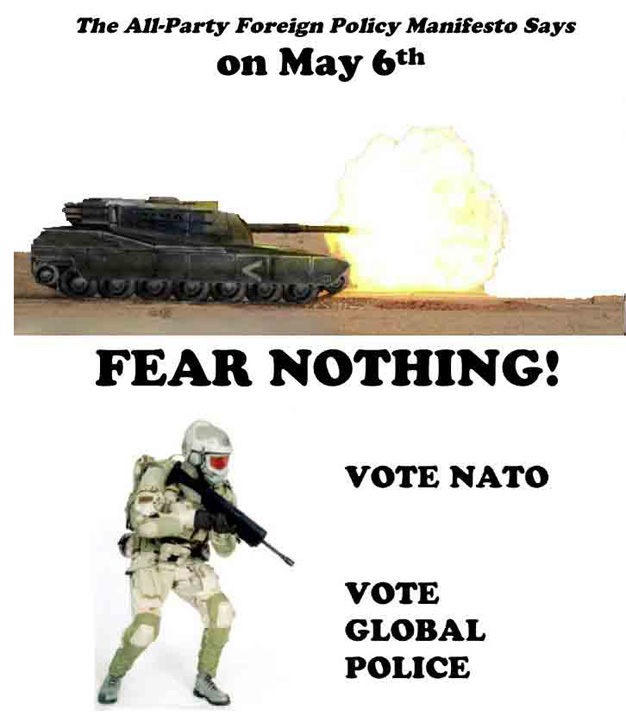
April 28th
I will be reading at the St Ives Cornwall Literature Festival in the St Ives Arts Club this coming Saturday May 1st at 8pm. Details here.
------------
I was asked by the magazine Markings “Is there someone you really rate who has the kind of talent worth publishing and promoting whom you could bring to our attention and enthusiastically endorse?” This as part of a series wherein a known writer makes a selection from an as yet unknown.
I have made a small selection with introduction from the poetry and prose of the Angus writer Eunice Buchanan. Now in her seventies and recently emigrated to Australia, she has written both in English and in her native Angus Scots. Her work deserves to be known: the Scots she employs brilliantly in her work I describe in my introduction as "the language of her mother’s tongue, the spoken language that has lived in Eunice Buchanan’s brain and married its intellect...a vocabulary dealing with things grasped in the hand, seen with the writer’s own eyes, heard with her own ears, a culture lived: not a language encountered firstly in book or dictionary."
The next issue should be out in a month or so. The Markings website is here.
April 22nd
Part of the fun that could be got from a performance by poet Bob Cobbing was hearing his booming, “posh” authoritative voice declaim, shout, sing or chant the most unauthoritave, anti-authoritiative, or ludicrously spoofed authoritative material. Or methodical systems could be formed from not any “drive for efficiency” but like a sound-based drive for “inefficiency”, for pure fun and at its best the seeming pleasure of just being somehow in these “unjustified” sounds themselves. More and more latterly he lived by that which the Lord Chamberlain’s office would never let through in any playscripts submitted before the demise of the censor’s office in the sixties: the ultimate non-controllable instruction—improvisation .
Bob it was who first invited me to come to London and make something for the Sound Festivals he used to have annually there in the National Poetry Centre. I made the works I called “My Name is Tom” and “Ach, Caledonia” (for tape recorders, singer/speaker and placards) for Bob’s festival in 1975. I owe it to him that I pushed myself in this direction for a while, as far as I wanted to go with it. He was inspirational to a lot of poets, with total everyday dedication to his own and others’ work, taking derision from the mainstream establishment for granted, he didn’t give a damn. He once told me that the only novel he had managed to get through from beginning to end in one sitting was Finnegan’s Wake. Maybe he was joking, but Bob is the only man I can think of of whom I would say it may well have been true.
I was really moved when at one performance he said he had just made a poem that he was dedicating to me, and he duly performed it.He told me afterwards that he had derived the poem from an academic book on English grammatology. How much was purely “found” and how much “interference” I don’t know.We were at a festival in Vienna when he gave me the script which I show here: I have never seen it published in any of Bob’s volumes though it may be in one of them. His own Writers Forum little press brought out more than a thousand publications in Bob’s lifetime.
Here is “The Tom Poems”, four mimeographed A4 stapled pages.
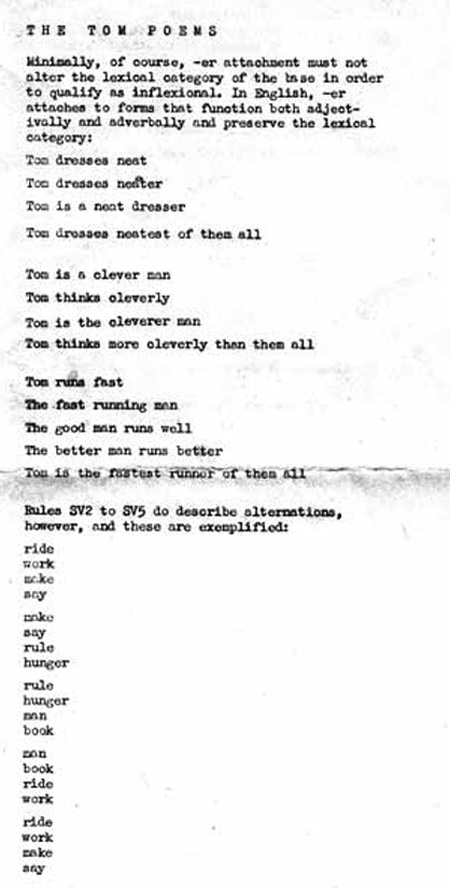
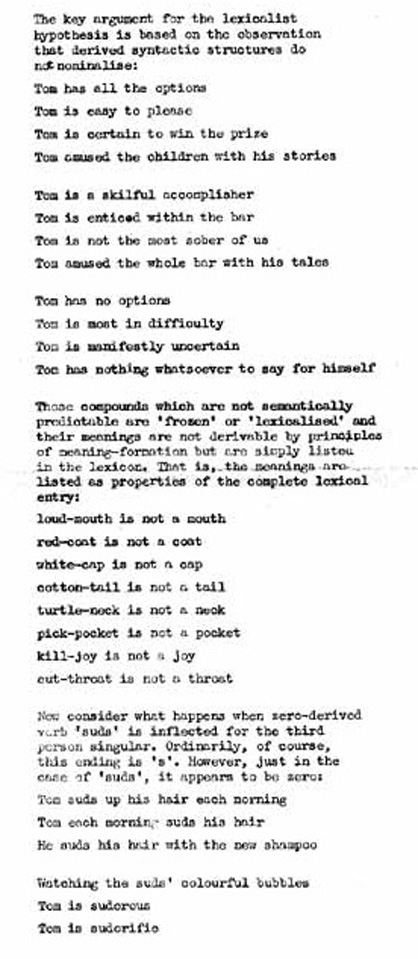
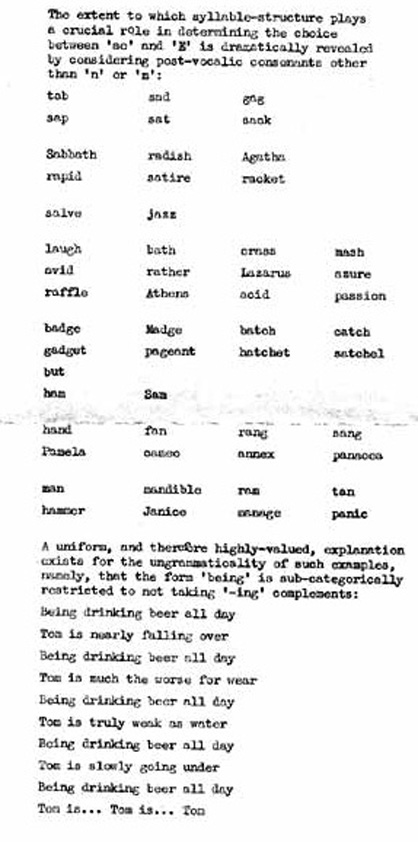
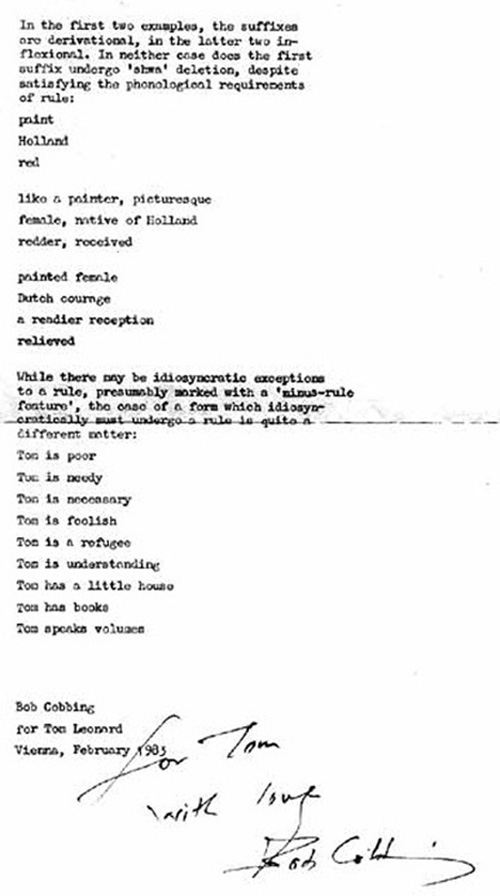
April 20th
The “text-based artist” Gerry Smith has set up a new website. I like the formal moves that go on in his work, also seeing it in photographs takes it out of the "this is an installation" white-walled gallery context where I sometimes have resistance problems.There’s some interesting browsing on his links. The site is here.
April 18th
A Scottish Literary Soiree
A peculiar dream. I reached the door of a room in a large building in Edinburgh and over the door were inscribed Steppenwolf ’s words “Entrance to Hell—Price of Admission your mind”. Over the word “Hell” someone had chalked the Scots word “douce”.
In the room sat rows of middle-aged to elderly middle class men and women. Some were in kilts. From a podium a minister with professionally twinkling eyes began a homily about duty and literature and how we were all jock tamson’s bairns. But some bairns had won hame wi’ honours aplenty. And the manse knew who they were. Would the invited bairns step forward?
The ritual that followed was like a kind of Scots-Korean mass wedding. Chiel after chiel, quean after quean stepped forward to accept from the minister a black cardboard container with “Jock Tamsons’ Elite Bairns’ Suger-Ally Water” engraved in silver on the side.
I wanted to shout at the minister and his brethren “To hell with your arrogance and ignorance! You are the prelates of the age! And some of you have the impudence to imagine yourself guardians of a presbyterian ideal!”But something held me back. Why was I here? Had I not accepted this invitation out of a desire Not To Be Rude? Instead of shouting, I found myself going meekly up when called by the minister and—being careful not to kiss his ring—I accepted the black container he thrust in my hand. “Well done, Bairn!” he murmured. “We are pleased with your progress.”
I could see some friends in the assembly, miraculously still alive and breathing in the rigor mortis of the Institution. And there were a few artists sitting no doubt thinking their long thoughts. But I had no time to stay. I had to attend the launch of a friend’s book of concrete poetry. It promised to be a lively and optimistic affair, with people under the age of fifty in attendance.
The stars twinkled over Edinburgh with no sense of duty, and the city’s pavement bins lay open for the reception of Sugar-Ally Water Containers. I stepped into the cold night air and—as the great Dunbar once put it—I did walkin.
April 16th
RECESSION? WHAT RECESSION?
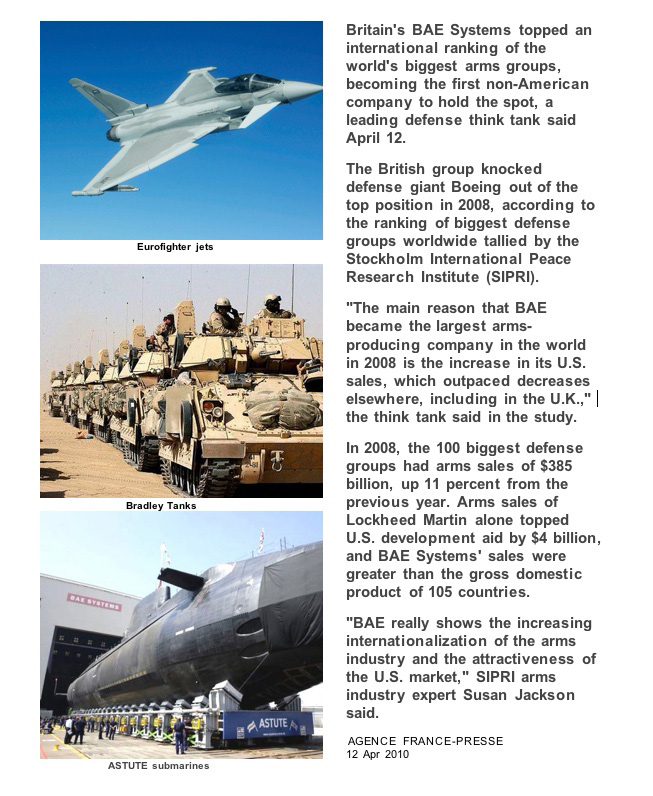
April 13th
Great excitement in the Leonard household!

The party manifestos are being released!
April 12th
The justice & peace religious people, with whom I can get on fine, are at the opposite end of the spectrum from the genital police. The justice and peace people concern themselves with justice and peace anywhere in the world. The genital police focus on that area in the world above the knee and below the waist. These genital police in the various religions invariably are patriarchal, pulpit-centred: self-appointed enforcers and literalist interpreters of the Book or Word of which they regard themselves as custodians. They are very afraid. But they suppress it, preferring to pass the fear onto others.
Some years ago I wrote an essay for a small Catholic magazine in America which I had found interesting as it opposes Vatican attitudes on sexuality and the position of women. I wrote about the church's attitudes to its own internal abuse perpetrators and victims in the light of its earlier public pronouncements regarding rape and young "virgin martyr" saints canonised in the twentieth century.
Follows a revised extract: the quotes are from sources online.
The manner in which the Catholic Church deals with child abuse and the rape of its own minors can be compared with its pronouncements on rape and virginity in certain young people it has made saints. Opposing sexual harassment and rape to the point of being killed it made synonymous with the maintenance of “purity” in “virgin martyrs” such as Maria Goretti, canonised in 1950.
Maria was a sexually harassed child who daily tried to avoid her harasser until he confronted her with a foot-long dagger, at which she reportedly said “You can kill me but you will not have me”. She was stabbed fourteen times and died the following day. She told her family she forgave her attacker before she died. Pope Pius XII at her beatification ceremony said she “preferred death before sin… She was on the watch day and night to defend her chastity, making use of all the means at her disposal, persevering in prayer and entrusting the lily of her purity to the special protection of Mary, the Virgin of virgins.” Maria Goretti from the fifties was cited by the Catholic Church not as an example of forgiveness but of “purity” to be prayed to especially by teenagers subject to "temptation".
Being raped is not about “having sex”, nor is someone resisting rape “refusing to have sex”. The Catholic Church mixed up “purity” with maintenance of virginity in the face of attempted rape to the point of murder. Witness this description of teenage murder victim Antonio Messina beatified by Pope John Paul II in 1987: “While coming home from gathering wood in a forest with a friend, Antonia was attacked by a teenage boy from behind. The attacker grabbed her by her shoulders and tried to force her to the ground while her friend screamed and ran for help. Antonia managed to escape twice but was knocked down the third time and severely beaten on the head and face with a rock. Though mortally wounded, Antonia resisted the would-be rapist. At autopsy, the doctors determined that Antonia's body had not been sinfully violated. The beautiful and virtuous Antonia died a martyr of holy purity similar to St. Maria Goretti. Pope John Paul II beatified Antonia Mesina on Sunday, October 4, 1987.”
Persona Humana, the Catholic Church’s 1975 “Declaration on Certain Matters concerning Sexual Ethics”—drawn up under Joseph Ratzinger—has it that “according to Christian tradition and the Church's teaching, and as right reason also recognizes, the moral order of sexuality involves such high values of human life that every direct violation of this order is objectively serious”. From this standpoint virginity can be given such absolute value that even sex in marriage seems almost “allowed” like some kind of soup ration. A beautiful soup ration of course. I have a number of times heard lofty sentiments from virgin priest lips about “the beauty and mystery” of marital sexuality and its domestic “sacrifice of mutual self-giving”. Wagner’s Tristan and Isolde piously rescored for piano duet. A lot of instruments edited out. The less there, the easier to control.
The Catholic Church is unable fully and properly to deal with its rape and abuse cases. A church run by a hierarchy of virgin men with praying and proselytising communities of virgin men and virgin women positing virginity as the highest of virtues implying ordinary sex as a vice is simply not up to the job. Church attitudes to the sexuality of the universal human are unhealthy. It is not enough to have money wrung from church coffers through litigation. The cult of virginity is too central, too sacred, too institutionalised. The matter is a taboo too far.
April 9th
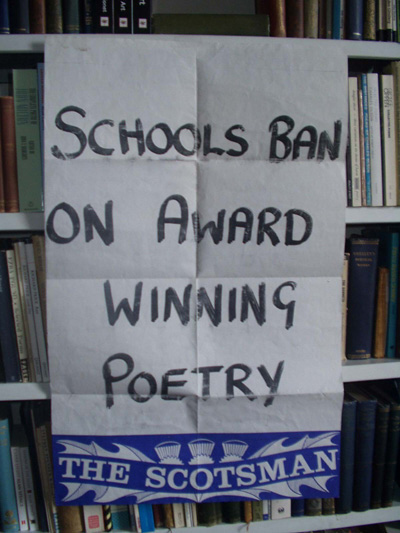
The above hoarding that I’ve hung on my bookshelves for the photo was given me in 1984. Someone saw it outside a newspaper shop in Fife, and went into the shop to ask if he could have it. He thought I might like a copy. The message refers to my collection Intimate Voices , banned from Central School Libraries in Stirlingshire because their education committee thought its language and outlook might interfere with the lawful duties of an English teacher in the classroom.
This newspaper hoarding has lain folded at the bottom of a drawer in my house for 25 years, the only “trophy” I ever got for my poetry that continues to give me some pleasure, when I remember it. Official Public Scriever for Fiefdom, Burgh, or Toon? Officerhood of the Order of the British Empire? Queen’s Gold Medals for Poetry?
Shove them up your arse—Ma’am!
April 8th
The theatre group Birds of Paradise are commissioning me to write a version of Brecht’s Mother Courage to go on the boards next February. It has been in the pipeline for a while and I am delighted to have the go-ahead. First draft for mid-September, and that’s where my mind will be focussed over the next six months.
And how better to celebrate than with one of my favourite Brecht poems:
Questions from a Worker who Reads
Who built Thebes of the seven gates?
In the books you will find the names of kings.
Did the kings haul up the lumps of rock?
And Babylon, many times demolished
Who raised it up so many times? In what houses
Of gold-glittering Lima did the builders live?
Where, the evening that the Great Wall was finished
Did the masons go?Great Rome
Is full of triumphal arches. Who erected them?Over whom
Did the Caesars triumph? Had Byzantium, much praised in song
Only palaces for its inhabitants? Even in fabled Atlantis
The night the ocean engulfed it
The drowning still bawled for their slaves.
The young Alexander conquered India.
Was he alone?
Caesar beat the Gauls.
Did he not even have a cook with him?
Philip of Spain wept when his armada
Went down. Was he the only one to weep?
Frederick the Second won the Seven Years' War. Who
Else won it?
Every page a victory.
Who cooked the feast for the victors?
Every ten years a great man.
Who paid the bill?
So many reports.
So many questions.

This year’s four winners of the best-in-category rosettes have now been
led into the public ring to be judged for the Cow of the Year award which
is annually announced at the prestigious Melrose Cattle Show in June.

The hypocrisy of Labour's supposed shock at the outed corruption of their ministers touting insider knowledge for cash is only bested by the hypocrisy of the Tory’s supposed outrage at this. It was Thatcher in the eighties who encouraged what is now endemic and integral-to-government operations. The book I found most useful for facts on this was Lobbying Government: Understanding and Influencing the Corridors of Power by Charles Miller published in 1987. I made reference to it in the collage of pseudo-diary entries and other data in “The Present Tense” now reprinted in outside the narrative. Current Westminster news might put this extract from “The Present Tense” in some perspective of comprehension:
About government, in relation to what you say. I have a book out the university library just now, a very exciting read, a book from which I will be taking some notes before returning it. The book is called "Lobbying Government" and is by far the clearest guide to the actual wielders of power in government that I have come across. It is written, with the help of M.P.s and government officials, by an advisor aiming the book at corporate directors wishing to use the government, as he puts it, "as a tool." It is not a left-wing book, which makes for very interesting reading of such as the table (the book is full of clear tables) which lists on a mark-out-of-ten basis those who have actual power: the single M.P. is bottom of the league (1 out of 10) whilst the Commons Chamber amasses 2 out of 10: comment "Facade of democracy." The new policy of farming out government officials to private industry before they then go back into government, of course also makes for interesting reading, as is the layer of industrialist "policy advisors." Not that the book names names but if you read the business pages of the papers at all there's plenty to choose from. The deliberate blurring of the distinction between industrialist and government official is shown in Scotland just now - the so-called "plan for growth" operated by a group of major industrialist as official advisors whose companies happen to have given the Tory Party hundreds of thousands of pounds. There's our Minister of Health who just happens to have made £30,000 in director's fees from advising on private tenders into the health service, the year before he took office. There's the latest "leak" from the Department of Overseas Aid, which makes it known that the government wishes, along with the Americans, to launch a scheme by which those countries requiring aid could have "help" to have their nationalised industries privatised. There's the latest news, within the past few days, of the "consortium" that is bidding to take over the General Electric Company, a huge thing worth billions, in the care of which there are a lot of Britain and America's most advanced and secret military work. The head of G.E.C. is, or was till recently a former government minister. The chairman of the consortium making the bid is the former Minister of Defence.
One could go on, and on.
--------
Speaking about going on and on I suspect I may give this journal a rest for a little bit, or at least make fewer entries for a while, as other matters are beginning to beckon in the writing field. Like Douglas Hogg MP, I must clear my moat and retune my piano.
I think that in Britain the dominant literary tradition still "taught" in educational institutions has been established by clearing the streets in this manner. A dominant value-system has been allowed to marginalise that which does not correspond to it, declaring it deviant and therefore invalid. It has been able to do so by the method of making the mode of expression of these dominant values literally synonymous with "objectivity". Now it is the mode of expression that counts: that device by which the persona is given the status of being detached, impersonal, above the battle. In speech it has been achieved through the fee-paying Received Pronunciation, buttressed by the Classics-based prescriptive grammar hammered into the pupils. These are the schools where, every single damned one of them, the British Army has its Officer Cadet Corps, where the young Inheritors of Objective Speech can take first steps in that training to lead into future battle those ordinary citizens trapped in the authentic expression of their own personal language.
I was reminded of thisparagraph when listening to Woman’s Hour yesterday on Radio Four. I like Woman’s Hour, at least when it is presented by Jenni Murray. Yesterday’s programme featured an interview Jenni Murray had with Charlotte Madison, who has published a book on her experiences as a captain in the army flying an Apache helicopter in Afghanistan. The interview and programme is available on BBC iPlayer just now.
JM: Women are forbidden to engage directly in hand to hand combat with the enemy but they can be trained to kill and go into action at a distanceCharlotte Madison was the first woman to qualify as a pilot of Apache helicopters whose sole purpose is to locate, shoot and kill, or destroy strategic targets. After three tours of duty in Afghanistan she’s retired from the army and is the author of a book Dressed to Kill. Charlotte why did you want to join the army?
CMHey Jenni. I kind of fell into it slightly by accident. I went to a girls boarding school just north of London and one of my girl friends said there was something called CCS the Combined Cadet Force and they all did it and they said all the cool girls do it come on you know come along with us, and I went along and it was every Friday and the, the atmosphere of team work and camaraderie was something that I had never come across before, and it was just, I think it is very unique and it felt very special, so you know for the ten minutes that you are on the assault course trying to get over the six foot wall or something nobody can be left behind and everyone is driving for the same goal and it was just, you know it was a teamwork thing that I had just never come across before and then I had the bug.
***
JMWhat would a typical mission involve?
CMSo a typical mission normally the Apaches are called out when there’s trouble we don’t tend to go out just on patrols cause it’s an expensive asset, so you go out to the location of the mission, you’ll just be given a grid, and a call sign, and you speak to the guy on the ground, whose called a J-tak, ehm, and you’ll get from him the friendly position and that’s the most important thing that you need to find, you need to make sure that you’ve seen with your eyes the friendly forces, ehm, because obviously the worst thing ever would be to confuse them with ehm the enemy forces.
Once you’ve located them you’ll either be told the route that they intend to take on their patrol and you’ll be asked to look ahead on the route and see if you can see any, disturbed ground, anything that might pose a threat, or more often than not, the friendly forces are already pinned down in a firefight, and they’ll just say, you know, To my north east, however far away I think we’re being shot at can you see anything, and then you’ve got the, the difficult part of the mission, which can go on for, sometimes an hour, even while the Friendlies are under contact, is trying to identify the enemy forces, cause there’ll be of course civilians wandering around as well or trying to get out of the area quite often
JMAnd you take out the enemy forces…
CMYes. Yeh. But you’ve you know and it’s so important to know that you’ve identifiedthem properly and that can go on for a really really long time
JMNow you’ve called the book Dressed to Kill and clearly you have… killed. How do you cope emotionally with what you’ve done, and what you’ve seen?
CMI think everyone probably copes with it differently, so anyone else you asked would probably have a different answer. I, feel like I was in a very privileged position to be able to make a difference on the battlefield, and I know a lot of people will think about the job and think about the killing, but actually for me it was more about saving and preventing loss of life to our troops, and it’s, its much easier to pull the trigger when you’ve been out and you’ve seen something to one of your, friendly forces you know you’ve had a look at them you’ve had a look at the patrol route, they set off on their patrol and you see somebody shoot one of them or you see somebody laying a bomb by the roadside, it’s incrediblyeasy the the guys on the ground are frightened and they’re saying can you help, and we can and it’s an incredible position to be in.
JMHow much easier it is do you think whey you are up there, pulling a lever, than if you were standing in front of, the enemy… firing straight at them.
CMPhysically it’s easier, because obviously we sit, strapped into a seat and the guys on the ground are carrying hundreds of pounds of kit, and, you know dealing with all the physical demands, mentally the Apache pilots get extremely involved in the conflict, in the fight, cause you’ve got your magnifying screens, you’ve got a hundred and twenty seven times zoom so you can see the faces of the enemy, where often the guys on the ground will not be able to see the faces so you can get extremely extremely close up, and in the book, I describe several scenes where, you know we’re really close and we’re relaying the information back to the friendly forces, so you can get emotionally extremely involved
JMHow easily, are you adjusting to, life away from, what must have been difficult but also full of adrenalin..
CMThe process of re-integration is difficult and, I think it’s different every time and, the thing that helps the most is support from your friends and family and that’s something that you know sometimes you’ll get and sometimes you won't, and, the hardest thing I found, is that I, came back from my first tour, and I suddenly realised the scale, of the war, in Afghanistan, and when I got home I thought well, this must have been on the news, everyone must know all about this, it’s absolutely horrific, and I went to go and have my hair cut, and the hairdresser said [imitates Cockney accent] “Oh you’ve got a lovely tan have you been awey?” and I said, Yes and I obviously didn’t want to talk about it, and she said [imitates] “Anywhere nice?” and I said No and she said “Where have you been” and I said, Afghanistan , and she said “Wot, on ‘olidey?” and I thought, I’m not going to talk about my experiences any more (laughs)
JMCharlotte Madison, thank you very much for being with us.
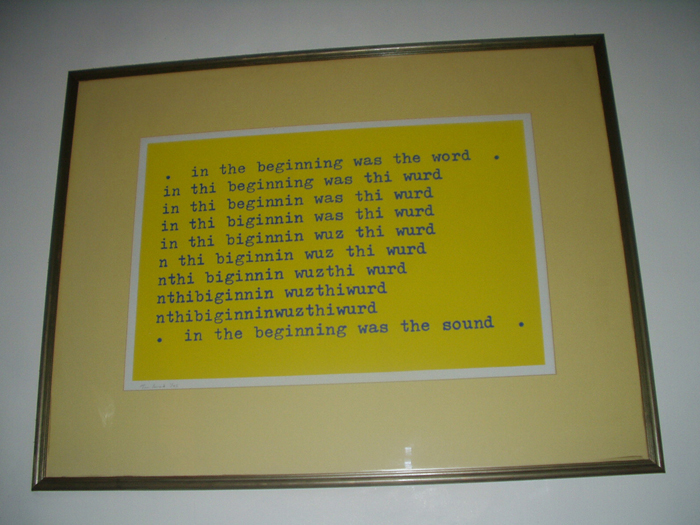
A new link has been added to the Yahoo group calling itself Stop Nato, which I wish had a less agitprop name though I can understand why it was chosen. It provides daily specific reports of country-by-country militarisation and “defence” strategy within an increasingly globalised Nato outreach. As such this site is a very useful finger on the pulse of the global arms narrative underneath and effectively driving global political strategy and maneouvre.
March 8th


The poem I think as a kind of mobile having to do with fundaments of language. “THE” is a word that can stand for ultimate enclosure, totality of all there is, the world, the universe.
“a” is instance within plurality, an apple, a man or a woman.
“this” is subject-specific, from an existent point of view,this thing here in my sight, this apple before me. It posits a presently existent state, present consciousness. The poem uses Christian trinity reference but maybe this concept comes out of fundaments of language or at least parallels such.
I have it framed on the wall as below.
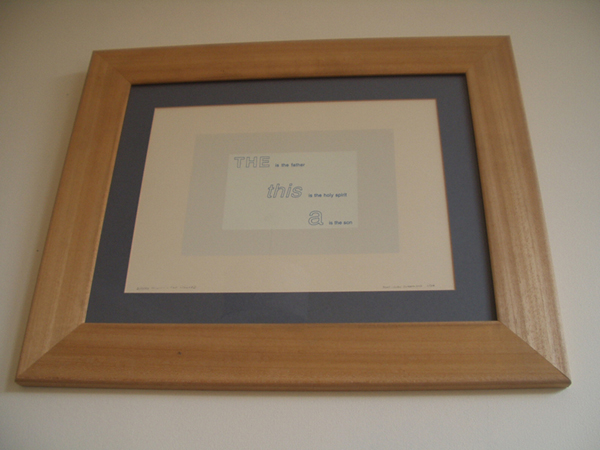
Not long ago Robert Mugabe was the target of western media sustained denunciation of the type that lasts usually a month or two every so often: outrage is directed either against a “tyrant”, or on behalf of a hero-against-the-tyrant somewhere else. It can be difficult sometimes in company to express dissent, since in the face of what is everywhere announced as Universal Human Truth, to dissent is to self-declare oneself as inhuman. As Orwell’s Winston said, "The horrible thing about the Two Minutes Hate was not that one was obliged to act a part, but, on the contrary, it was impossible to avoid joining in."
In the early nineties I had an agent, my friend Cathie Thomson, who looked after my interests while I was with Cape publishing my biography of James Thomson Places of the Mind . Cathie’s partner David Alexander, a lecturer in education in Edinburgh University for twenty years, also spent years teaching in Zambia and Rhodesia/ Zimbabwe, and has continued to publish educational research on the region. A couple of weeks ago he tried to have published in the Guardian a letter replying to an article by the archbishop of Canterbury and the ubiquitous rightwing Bishop of York John Sentamu. As token qualifying murmur against unqualified anti-Mugabe rhetoric, David Alexander's letter is here reproduced:
With reference to the article “Our Vital Contribution” by Rowan Williams, archbishop of Canterbury and John Sentamu, archbishop of York on 8/2/2010 it is important to point out that the public health and education services built up by Dr Mugabe and Zanu-PF since 1980, when despite British government opposition and intimidation of Zanu-PF voters Zanu-PF won an overwhelming election victory, have over the last few years been severely affected by declared and undeclared economic sanctions by the British Government, the European Union, the USA and the white Commonwealth. These together with International Financial Institutions (World Bank and International Monetary Fund) measures have significantly contributed to the economic deterioration and adversely affected the basic conditions of life for the majority. The IFIs withdrew loans and balance of payments support so that Zimbabwe could draw on no major lines of credit. In the USA the Zimbabwe Democracy and Economic Recovery Act was sponsored by Jesse Helms, a supporter of Ian Smith’s illegal Unilateral Declaration of Independence, was signed by Bush at the height of the land reforms in Zimbabwe which returned land to Zimbabwean owners—the land rights of white farmers were based on theft.
Dr Mugabe has his faults and Zanu-PF should have taken the chance to renew itself since 2001. Zanu-PF is now in the coalition government with the MDC (which has two sections) and Tsvangarai. On March 3rd 2005 in a farewell speech to President Nujoma of Namibia, President Mugabe thanked Nujoma for support of his land reform programme (4200 white farmers, corporations and a fewblacks had owned 70% of the arable land but did not crop more than 30% of it or stock more than 50% grazing land) and said that “the emphasis is now on ensuring the overall success of the programme through effective land utilisation, the provision of draught power, agricultural inputs and the necessary extension services to the newly resettled farmers.” What is important now is not so much support for the NGO’s with their four wheel drives and salaried staff who live in hotels but development support for the coalition government’s programmes which will improve conditions for the majority.

